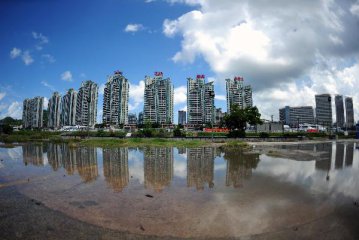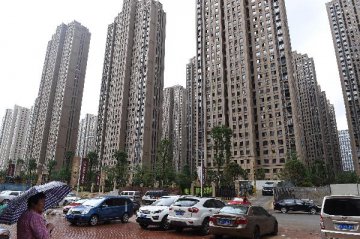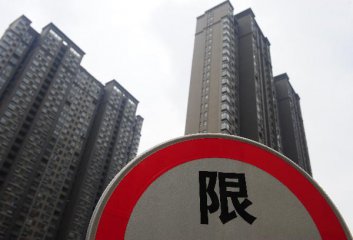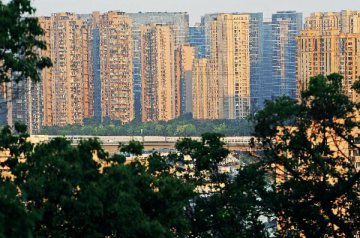
Property developers have realized the importance of land reserve in the past year. Some property developers indicated that it is intolerant that “there are no available houses when the market is booming”. Based on the logic of “acquiring land when the market is sluggish and selling houses when it is booming”, it is time to supplement land reserves. As a result, the land transaction and merger market has been booming this year.
After the de-stocking last year, property developers are fighting in supplementing stocks.
Based on the statistics of the research center of Centaline Property Agency Limited, 25 property developers have invested 559.91 billion yuan in acquiring land as at May 10, representing an increase of over 100 percent year on year. 21 property developers have invested over 10 billion yuan in land acquisition.
Various subjective and objective factors contributed to the enthusiasm of property developers in acquiring lands. The demand for supplementing stocks after the booming year for sales is the most important endogenous driver. As the industrial competition becomes increasingly intensified, the value of land is outstanding. The sufficient capitals and the government’s efforts in increasing land supplies also drove the wave of land acquisition.
It is noteworthy that as a result of the relatively low borrowing cost, the liabilities and debt ratio of property developers have been increasing. Due to the high pressure on the regulation on the property market, the market has been declining. It will be a key test for property developers to deal with the risks on pressure and capital chains.
Tiers-1 and 2 cities are main battlefield
The statistics of Centaline Property Agency just covered the size of land acquisition of property developers in listed markets and the equity acquisition has not been included. Based on the statistics, the above 25 property developers have invested 450.19 billion yuan in land acquisition in tiers-1 and 2 cities since the beginning of the year, accounting for 80.4 percent.
On the one hand, tiers-1 and 2 cities have tight inventories and enterprises are eager to acquire land. On the other hand, the supply of land in such cities has been increasing.
The Ministry of Housing and Urban-Rural Development and the Ministry of Land and Resources jointly released the circular on the administration and regulation on the supply of residential houses and land on April 6, requiring increasing land supply in cities with a de-stocking period of 12 to six months. For those with a period of less than six months, they shall speed up in increasing land supplies.
Subsequently, Beijing, Guangzhou, Nanjing, Hangzhou, Zhengzhou and Hefei have released plans on land supply and various lands. Some non-hot cities also increased land supply in this round of land supply.
11 parcels of land in Wujiang, Jiangsu province have been transferred with 4,622 million yuan from May 9 to 10. Qingdao introduced seven parcels of land at the bottom price on May 11. On the same day, Suzhou introduced 19 parcels of land, including eight parcels of land for residential houses. Such land will be traded next month. Baoding also released 15 parcels of land on May 10, 14 of which are for commercial services.
Although the wave of land supply significantly eased the pressure of property developers, some hot parcels are still favored. On May 10, the bidding for a parcel of land in the CBD of Nanchang was won by Guangzhou R&F Properties Co., Ltd. (02777.HK) with 1,177 million yuan, representing a premium of 62 percent. The floor price is 8,522 yuan/square meter.
Country Garden Holdings Company Limited (02007.HK) is the most active one in acquiring lands. As at May 10, the company has invested 58,241 million yuan in 109 parcels of land with a total planned floor area of 1,482 square meters. Poly Real Estate Group Co., Ltd. (600048.SH), China Evergrande Group (03333.HK) and China Overseas Land & Investment Limited (00688.HK) also invested over 40 billion yuan in acquiring lands. China Vanke Co., Ltd. (02202.HK; 000002.SZ) ranked seventh with 33.9 billion yuan invested in land acquisition.
Most enterprises mainly acquired lands in tiers-1 and 2 cities. Some also invested in tiers-3 and 4 cities. The difference in unit land prices is big. The unit prices in land acquisition by China Evergrande and Country Garden are no more than 4,000 yuan/square meter while it is more than 20,000 yuan/square meter for Beijing Capital Development Co., Ltd. (600376.SH) and COFCO Property (Group) Co., Ltd. (000031.SZ).
Value of land
“Those with higher prices will obtain the land bidding. Mainland developers are willing to accept risks and fewer profits. As a result, mainland developers will have more opportunities in winning bidding compared with Hong Kong developers.” Shi Yongqing, chairman of Centaline Property Agency recently indicated. If Hong Kong developers are inactive in land acquisition, they will rely on rents like U.K.-funded developers. Despite fewer risks, they cannot achieve value appreciation due to lack of long-term development strategies.
Despite a warning on Hong Kong developers, Shi’s remarks explained why property developers are enthusiastic about land acquisition.
It is a basic strategy of property developers to prepare land reserves for three years of development, indicated Yan Yuejin from the E-house China R&D Institute. Yan also pointed out that as the industrial competition becomes increasingly intensified, the value of land is more than “reserve”.
“Land acquisition is out of the worries over the rising cost in acquiring lands. The land price has been increasing. Property developers are enthusiastic in acquiring lands like ordinary people buying houses,” indicated Yan during an interview with 21st Century Business Herald.
An anonymous analyst told 21st Century Business Herald that as the competition in the property market becomes increasingly intensified, the value of land is higher. The current land reserve will determine the future sales to some extent. The land reserve is an excellent opportunity for property developers to surpass others in the future.
The analyst also indicated that as the industry is under merger and reorganization, land reserve plays an essential role in consolidating the strength of property developers. “Despite some exclusions, property developers with sufficient land reserves will enjoy more opportunities.”
Property developers have realized the importance of land reserve in the past year. The Suzhou branch of a listed property developer has suffered supply shortage since May last year. It cannot afford the high-priced land in the open market and cannot find appropriate merger opportunities. The headquarters of the developer indicated that it is intolerant that “there are no available houses when the market is booming”. It is learnt that the case is not alone.
As a result, property developers have been busy acquiring lands as the market is sluggish. Based on the logic of “acquiring land when the market is sluggish and selling houses when it is booming”, it is time to supplement land reserves. As a result, the land transaction and merger market has been booming this year.
Debts repayment to peak in following two years
It is still uncertain if such land reserves will turn into results or burdens.
As the it becomes stricter in land transfer, property developers’ cost in land acquisition in increasing, indicated Zhang Dawei, chief analyst at Centaline Property Agency told 21st Century Business Herald. When the houses prices are adjustment, such projects may face risks on slow sales.
Zhang also indicated that over 70 percent of amount in land acquisition are spent in cities under regulation. If such cities continue to bring more pressures, the sales in the future will face more risks and the prospects of probability will also be affected.
Currently, some property developers have slowed down in entering the market, which resulted in the plunge in the supply in hot cities. With the rising capitals cost, the cost in holding such assets will also increase and may become new burders.
Centaline Property Agency pointed out that the yield rate of bonds issued by property developers was 4 percent or less last September. However, most of them have reached over 5.5 percent since April.
It is not good news to property enterprises with relatively high liabilities. Based on the statistics of Wind, the total liabilities of 136 A-share listed property developers exceeded 4.92 trillion yuan in 2016, representing an increase of 25.93 percent year on year. The average asset-liability ratio was 77.26 percent, slightly higher than the previous year. However, the asset-liability ratio of 32 developers has exceeded 80 percent.
Yan pointed out that property developers may continue to make borrowings to obtain more land. The liability ratio is very likely to hike in short term.
The high liability ratio does not mean high capital risks. In the opinion of Yan, property developers will see peaks of debts repayment in the following two years. If the sales face difficulties or the high interest rate in the capital market is not improved, property developers will see more capital pressures.
Many believe that it is difficult to estimate the future trend of the property market in the future. But the increasing regulation and rising capitals cost mean that property developers have passed the period with the most sufficient capitals. It will be a key test for property developers to balance land reserves and the possible capital risks.
Translated by Star Zhang























Latest comments